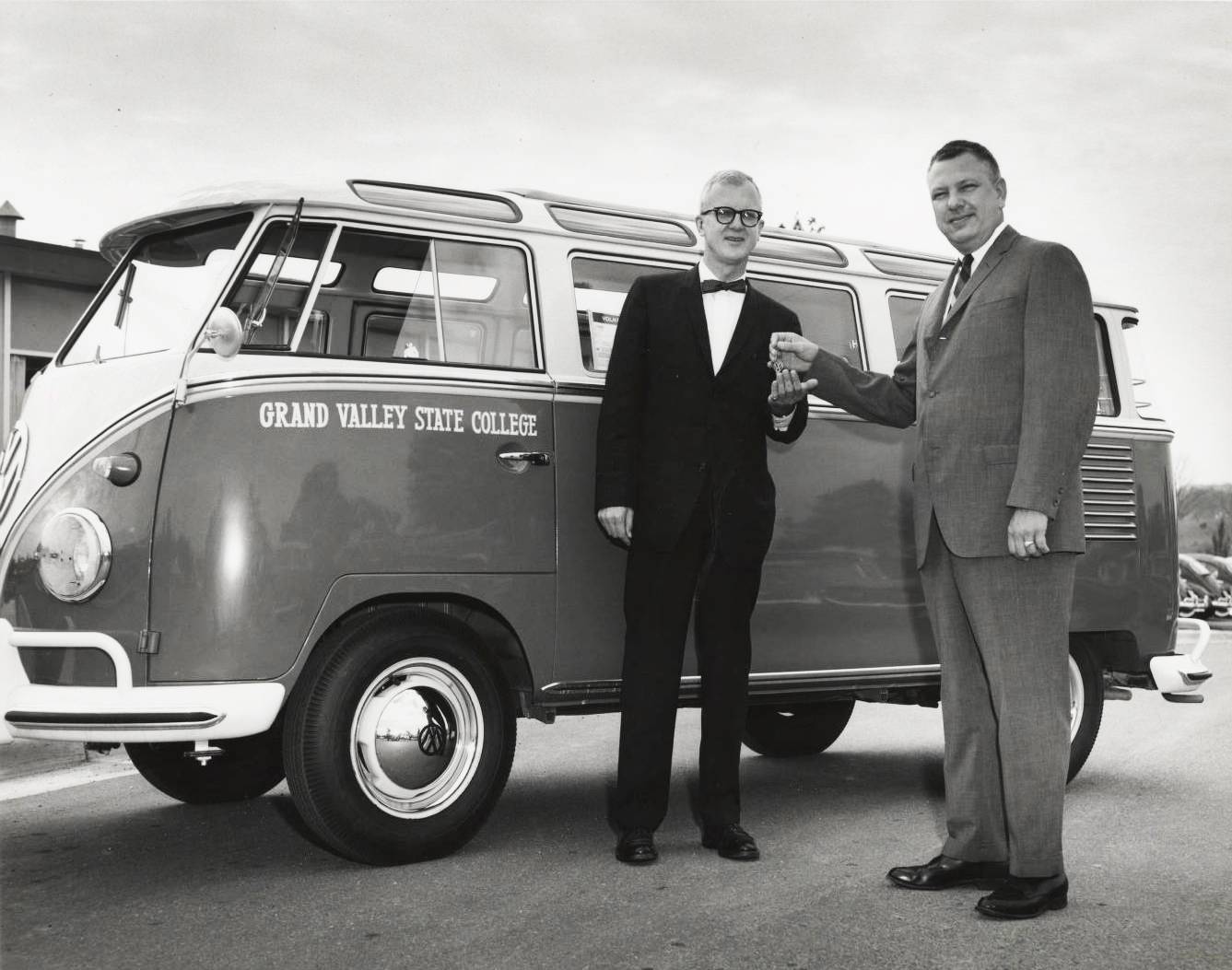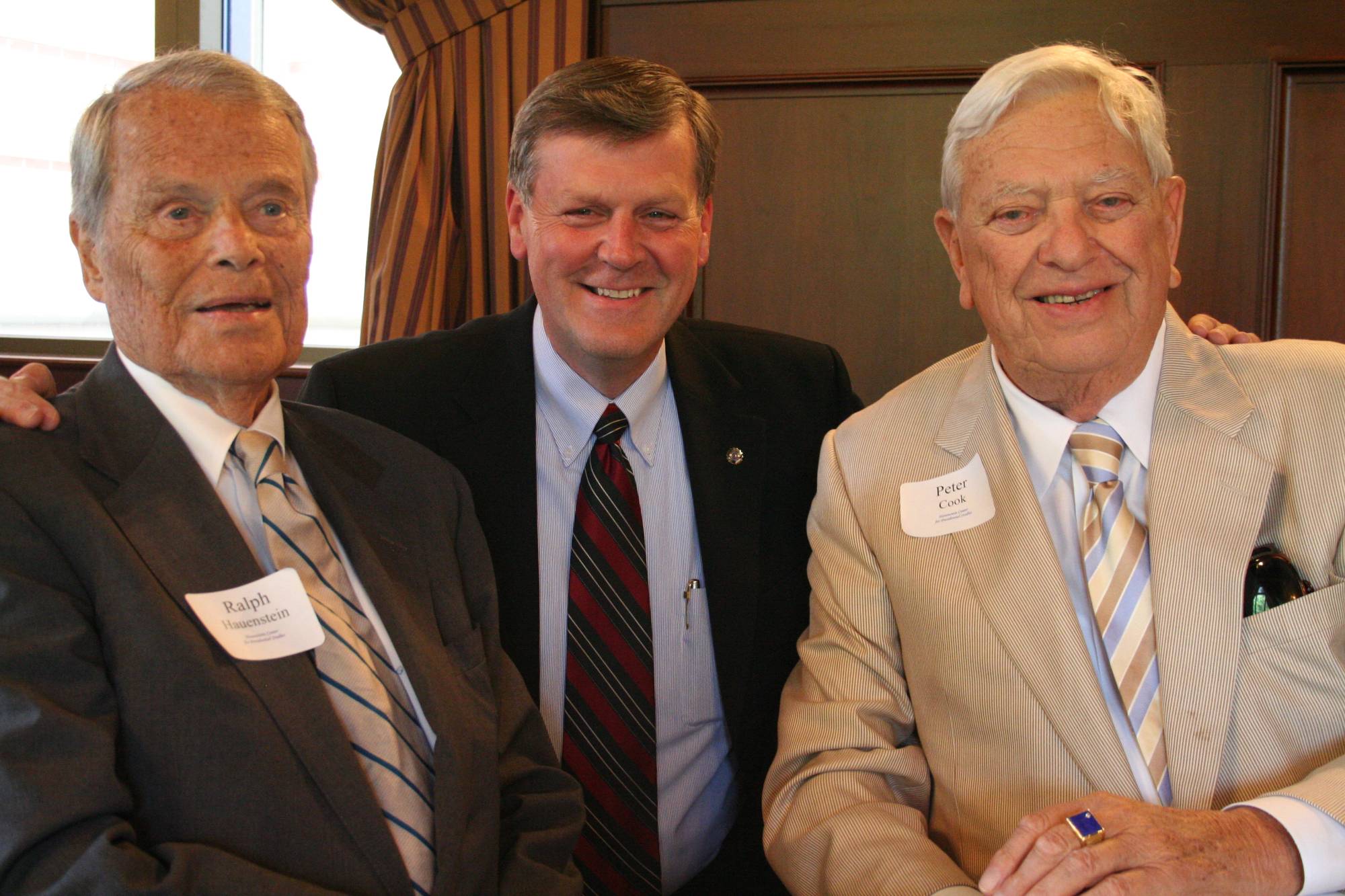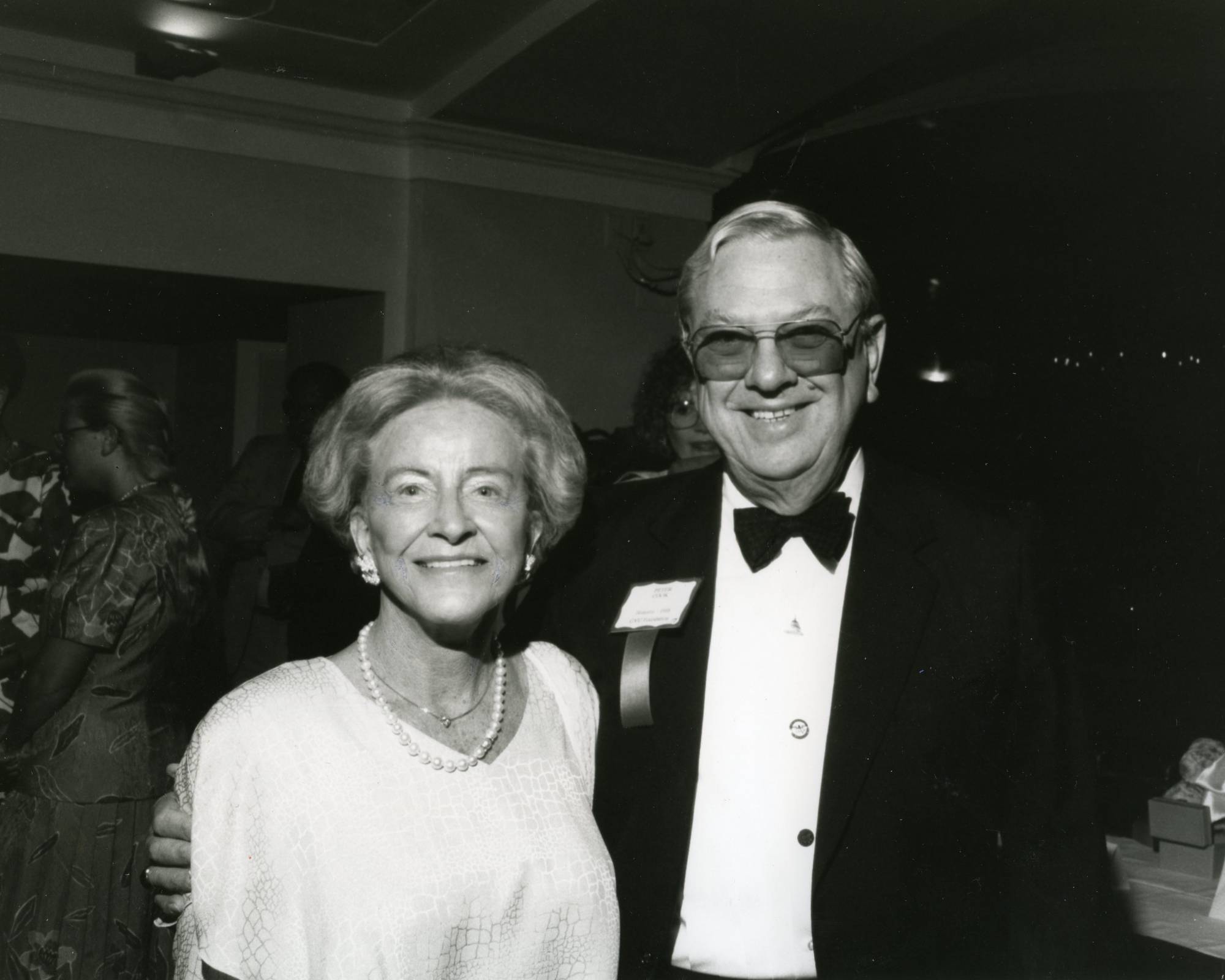Due to forecasted weather conditions, the university has implemented REMOTE STATUS on Friday, December 19, 2025. Students, faculty, staff, see email for more information.
Peter C. Cook
[1604599318].jpg)
Peter C. Cook was a quintessential leader. He began humbly, starting on a manufacturing line for 17 cents an hour and ending owning his own automotive sales company. Even after his passing, he continues to inspire emerging leaders through the Peter C. Cook Leadership Academy.
As he completed his studies, Peter moved into the accounting office as Kelvinator, then at Blackmer Pump, then by 1948 at Ranger Reel. It was there he met the most important mentor, Howard Sluyter, who provided the opportunities and encouragement that were vital to Peter's early success.
Sluyter had a passion for speedy automobiles. He would later work will Bill France Sr. (founder of NASCAR) and Clint Murchison Jr. (founder of the Dallas Cowboys) to finance the Daytona International Speedway. in 1948, Sluyter began importing MG and Jaguar sports cars from England and he made Peter his salesman. Soon, Peter found himself piloting high-speed test-drives with potential buyers down the middle of Kent County Airport runway. By 1950, Sluyter had a company—Import Motors Limited, Inc.— and he had an extremely capable employee in Peter.
Within a few years, Peter demonstrated his ability to take the helm. Immediately following World War II, between 1945 and 1948, the British an Russians controlled industrial production within war-torn Germany. As West Germans regained control in the early 1950s, automobile manufacturing became a symbol of the nation's recovery. Volkswagen in particular—Hitler's "people's car"—was exporting 70,000 automobiles a year by 1953.
Showing extraordinary foresight, Peter became one of the first Americans to import the VW brand. He negotiated a deal over dinner in Grand Rapids' historic Bierstube restaurant with Will van de Kamp—Volkswagen's zealous U.S. representative—winning exclusive VW distribution rights in Michigan and Indiana. Peter was named president of Import Motors in 1954, and he came one of the Midwest's leading distributors of Volkswagen, Porsche, and Audi until he sold the company 26 years later in 1980.
In 1977, Peter had founded a new company—Transnational Motors, Inc—where he again showed extraordinary foresight. Japanese companies had been manufacturing automobiles for much of the 20th century, but they only began exporting their products in earnest in the 1970s. During that decade, Japanese production rose from three million cars to seven million. Recognizing an opportunity, Peter negotiated exclusive distribution rights for Mazda automobiles and parts in five states.
This occurred two years before the Ford Motor Company recognized the same opportunity. Peter's company grew to 130 dealerships under the name Mazda Great Lakes before he sold it to Ford in 2000 after 23 years of business. His 150 former employees—who call themselves Mazda Great Lakes Alumni—meet socially four times a year and maintain an alumni website, an online testament to the culture Peter created.
After many years of success, Peter and his wife, Pat, established an investment company—Cook Holdings—and gave millions of dollars to community organizations through the Peter C. and Emajean Cook Charitable Foundation.
"Making [money] is work, but giving it away is fun," Peter said. "It's a blessing to be able to help people." Peter and Pat supported colleges and universities, as evidenced by buildings bearing their name at right schools in the region. Their generosity also makes possible the Peter C. Cook Leadership Academy at Grand Valley's Hauenstein Center for Presidential Studies. The couple also contributed generously to the health sciences, helping a cutting-edge industry grow in Grand Rapids.
Additionally, Peter and Pat Cook gave to the arts, helping fund new buildings for the Grand Rapids Art Museum and the Grand Rapids Civic Theatre, while also supporting programs by the Grand Rapids Symphony, Opera Grand Rapids, and the Broadway Theater Guild.
They also donated to the Grandville Avenue Academy for the Arts, located in the neighborhood. of Peter's birth. They supported numerous other construction projects and programs in the community, and they gave to political candidates and causes.
The rising generation of leaders can take lessons from Peter's story. Even in tough economic times, we can have faith and build a foundation for success. We must be patient in our apprenticeships. Good mentors are invaluable. We cannot by shy when opportunities arrive. We must have foresight. Humility and respect for others go along way. We must be willing to give, even before we feel able. Perhaps most surprisingly, humble aspirations—to make a life, a living, and a contribution—can change the face of a community.
Peter and his best friend—Ralph Hauenstein, founding benefactor of the Hauenstein Center—continue to shape Grand Rapids today. Educational, medical, and cultural buildings stand across the city as a memorial to the philanthropic spirit of Peter, Ralph, and others of their generation.
Peter C. Cook's footprints can be found all over Grand Rapids in organizations dedicated to higher education, worship, scientific research, medicine, and the arts. He built two successful companies, served on more than two-dozen private and nonprofit boards, and his family's generosity has quite literally changed the landscape of his community. By all accounts, he was a stunningly successful and consequential leader.



